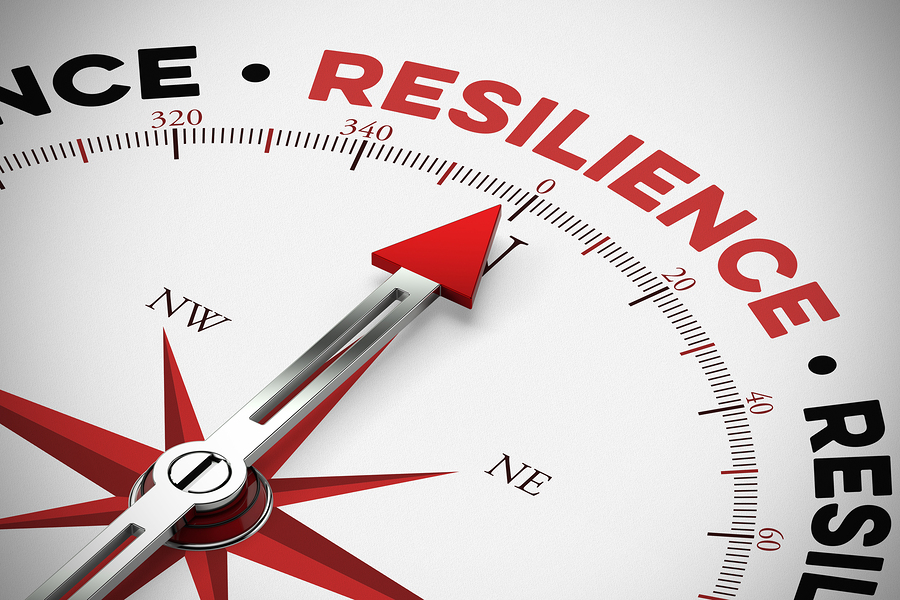The importance of being resilient
Being able to pick ourselves up and move forward when things don’t go as planned is the spirit and essence of being human.
The importance of being resilient today is as fundamental as it has ever been. It can help to manage depression and anxiety and improve overall mental health. Resilience can help lessen the impact of a mental health condition, help offset lack of social support or coping with bullies and ultimately enable us to recognise and reach out to others if we need it.
Our problems won’t magically go away through resilience but it can provide us with the tools to see past them and find the joy in life. Those of us with resilience have learnt not to dwell on failure but instead come to terms with the situation. Learn and move forward.
Can resilience be improved?
Resilience can certainly be developed, it just takes practice. If you feel that you would like to be more resilient there are some simple ways that can make a difference.
Making sure you get good quality sleep, factoring in time for yourself in the day, taking moderate exercise and maintaining a healthy diet can all help with building resilience.
5 ways to become more resilient
2. Up your energy levels
If you are not well rested then you may feel mentally and physically drained which will affect your level of resilience:
- Try to cut down on caffeine
- Try to factor regular exercise into your week, keep hydrated and eat healthily
- Try to find ways to switch off
- Get outside as much as you can, perhaps have a lunchtime walk to get your circulation moving and soak up some daylight.
2. Build a network of friends and family
Loneliness can adversely affect our mental health so a network of family and friends can pay a big part in making us feel valued. It can also help with offering support when you find yourself facing life’s difficulties.
Offering support and comfort to others can help to strengthen our relationships and make them meaningful. This can either be through helping friends and family or indeed volunteering for a local charity or group.
3. Take a step back
It is sometimes difficult to clearly see a solution to a tricky situation so it is useful to get some perspective by stepping away. This may just mean taking a short, brisk walk which will allow you some time to reflect and so help see the bigger picture. Taking a step back can help with:
- Focusing on things you can control rather than things you cannot
- Recognising that it may not necessarily be the situation itself but the way you view it that is making you feel emotional
- Focusing on the positive rather than dwelling on the negative
- Realising that you can achieve things and concentrate on these successes.
4. What are your goals?
Work out your priorities as this will help you to develop and maintain a positive outlook. Understand what matters to you most and your goals in life. Try thinking about what is most important to you and what changes you can make to give you time for what matters most. Perhaps consider your strengths and how you can use these more.
5. Identify and manage your emotions
Emotional intelligence is having the capacity to identify and manage your own emotions, as well as identify other people’s emotions. This is central to seeing things objectively and comes when you are able to feel an emotion, put a name to it and ultimately be able to express it to others.
Emotional intelligence can help when you have a difference of opinion with someone or when you feel threatened. Good interpersonal skills can help us to develop a shared understanding with others and ultimate lead to closer relationships.
Learning when to ask for help is a sign of strength, not weakness and is certainly a sign of good resilience. If we wish to build our resilience it is important to be aware that we all need the help of friends and family from time to time. Learning to acknowledge what is good about our lives and not focus on the negative is crucial to leading a full and enjoyable life.
Learn more about how to reduce caffeine, keep hydrated and how to return to exercise.
Disclaimer
All content on Silversurfers.com is provided for general information only, and should not be treated at all as a substitute for the medical advice of your own doctor or any other health care professional. Silversurfers will not be responsible or liable for any diagnosis made by a user based on the content on www.silversurfers.com and we are also not liable for the content of any external websites or links from or to Silversurfers to any other websites. Please always consult your own doctor if you’re in any way concerned about any aspect of your health.
Melina - Assistant Editor
Latest posts by Melina - Assistant Editor (see all)
- By yourself at Christmas this year? Tips on how to manage alone - December 16, 2024
- The Silversurfers, just for fun, Christmas Quiz! - December 14, 2024
- 10 potential hazards for pets at Christmas - December 10, 2024
- Christmas Spiced Blueberry Panettones - December 1, 2024
- Three must have toys of the late 60’s - November 24, 2024




















